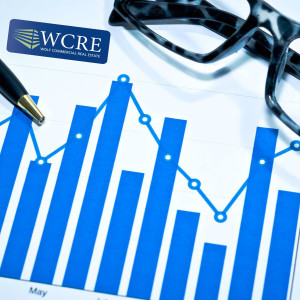 The U.S. commercial real estate market recorded 11 million square feet of net absorption in the first quarter of 2016, causing the nation’s average vacancy rate for office space – including Philly office space and Philly retail space – to tick down to 6 percent, the lowest quarterly level since the Great Recession.
The U.S. commercial real estate market recorded 11 million square feet of net absorption in the first quarter of 2016, causing the nation’s average vacancy rate for office space – including Philly office space and Philly retail space – to tick down to 6 percent, the lowest quarterly level since the Great Recession.
Despite a new wave of store closings and weaker-than-expected retail sales in the U.S. and Philadelphia commercial real estate market in the first quarter, solid U.S. job growth and wage gains suggest that retail demand should rebound over the remainder of 2016, said Suzanne Mulvee, CoStar Portfolio Strategy director of U.S. research, retail.
Mulvee made her comments in CoStar’s first-quarter State of the U.S. Retail Market Review and Forecast – a report on the health of national and Philadelphia commercial properties was made available through Philadelphia commercial real estate broker Wolf Commercial Real Estate, a Philadelphia commercial real estate brokerage firm.
A similarly weak first quarter for national and Philadelphia commercial real estate listings occurred in 2015, followed by accelerated activity in the second half of the year. However, as Mulvee noted, the stable vacancy rate involving the U.S commercial real estate market, including Philly office space and Philly retail space, belies a challenging environment for some retailers as an increasing number of store chains look to ‘right-size’ their real estate holdings.
The first quarter, typically the season for closures of underperforming stores, saw the largest level of closures since 2010, with retailers operating national and Philadelphia commercial properties as diverse as Wal-Mart, Macy’s, American Eagle, Aeropostale and Kohl’s opting to close hundreds of brick-and-mortar locations, while a number of chains, including Sports Authority, filed for bankruptcy protection.
With the second quarter now well under way, the ominous rumbling of weak financial results and the specter of store shuttering continues, with retail analysts receiving several pieces of bad news this week involving U.S. and Philadelphia commercial real estate listings.
- On Tuesday, a U.S. District Judge granted the Federal Trade Commission’s request to block the proposed $6.3 billion merger of Staples, Inc. and Office Depot.
- On Wednesday, Macy’s Inc. reported a worse-than-expected 7.4% sales decline in the first quarter, continuing a run of rough quarters for the department store chain.
- On Thursday, Gap Inc. also reported weak sales and Kohl’s Corp. reported its first sales decline in six quarters, in a retail environment described by Kohl’s CEO Kevin Mansell and several other retail executives this week as challenging.
Despite the raft of store closings, retailer appetite for well-located space remains sharp. However, an increasing shortage of the most productive shopping center space, and limited new construction, is weighing on demand. As a result, retail vacancy may soon start to rise in New York City, San Francisco, Boston and other large metros.
Large retailers as a group have posted record profits and sales on a trailing four-quarter basis. However, net sales have plateaued over the last year and CoStar expects slowing sales growth to limit physical expansion for both high-end and discount chains. Median comparable-store sales growth was down to about 1 percent in early 2016, the lowest of the cycle, from a high of more than 3.5 percent in 2012.
“These numbers in aggregate indicate that public retailers will be pulling back on their expansion plans,” said Ryan McCullough, senior real estate economist for CoStar Portfolio Strategy. “The second implication of that is that the retail recovery has matured. We’re beyond the point where we’re talking about pent-up demand for retail and are now looking at underlying fundamentals driving retail sales growth.”
“There could be plenty of growth left, but calling it a recovery from this point forward may not be entirely accurate,” McCullough added.
For more information about Philly office space, Philly retail space or other Philadelphia commercial properties, please call 215-799-6900 to speak with Jason Wolf (jason.wolf@wolfcre.com) Leor Hemo (leor.hemo@wolfcre.com) or Lee Fein (lee.fein@wolfcre.com) at Wolf Commercial Real Estate, a leading Philadelphia commercial real estate broker that specializes in Philly office space and Philly retail space.
Wolf Commercial Real Estate is a Philadelphia commercial real estate brokerage firm that provides a full range of Philadelphia commercial real estate listings and services, marketing commercial offices, medical properties, industrial properties, land properties, retail buildings and other Philadelphia commercial properties for buyers, tenants, investors and sellers.
Wolf Commercial Real Estate, a Philadelphia commercial real estate broker with expertise in Philadelphia commercial real estate listings, provides unparalleled expertise in matching companies and individuals seeking new Philly office space or Philly retail space with the Philadelphia commercial properties that best meets their needs.
As experts in Philadelphia commercial real estate listings and services, the team at our Philadelphia commercial real estate brokerage firm provides ongoing detailed information about Philadelphia commercial properties to our clients and prospects to help them achieve their real estate goals. If you are looking for Philly office space or Philly retail space for sale or lease, Wolf Commercial Real Estate is the Philadelphia commercial real estate broker you need — a strategic partner who is fully invested in your long-term growth and success.
Please visit our websites for a full listing of South Jersey and Philadelphia commercial properties for lease or sale through our Philadelphia commercial real estate brokerage firm.


